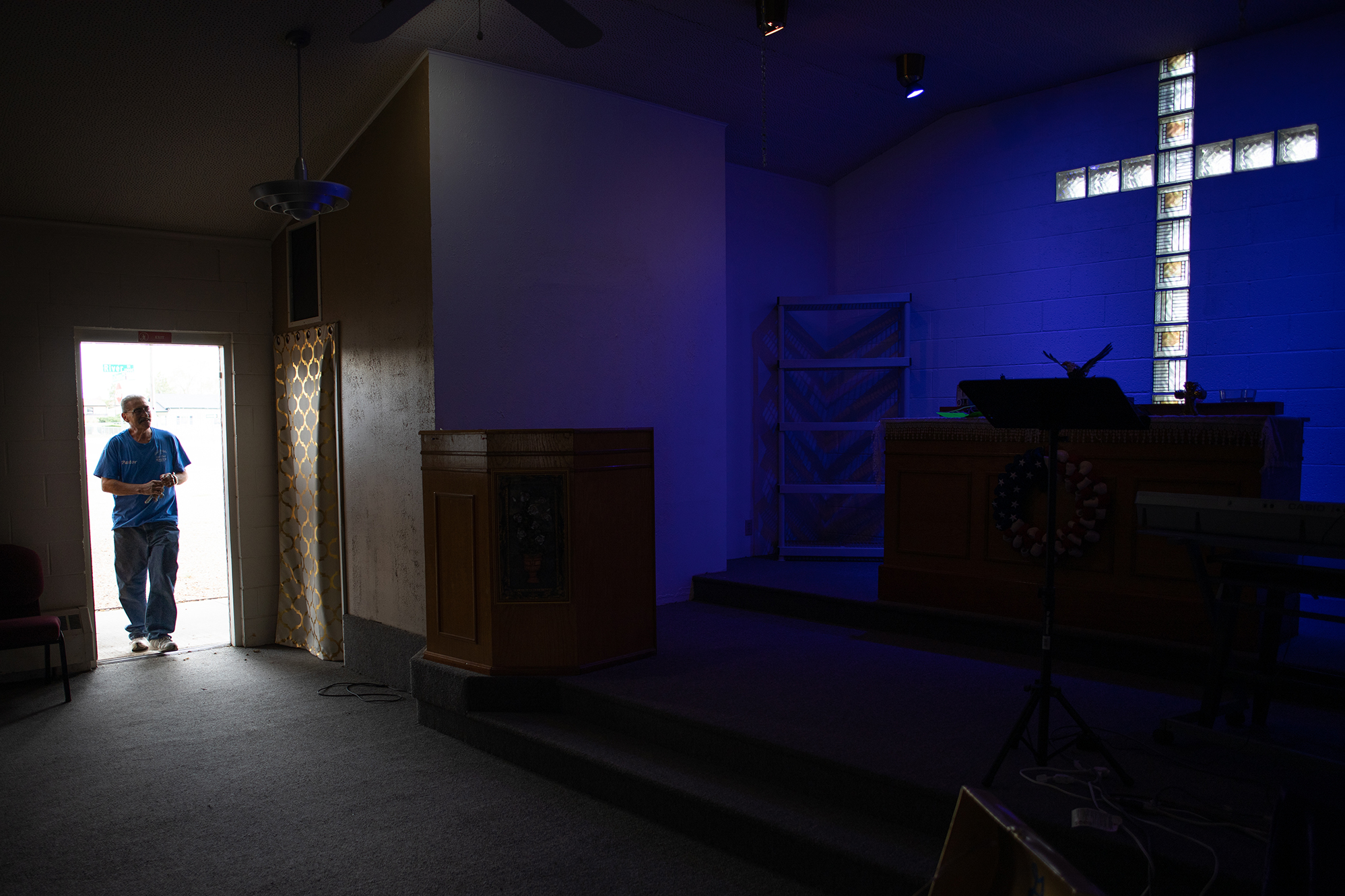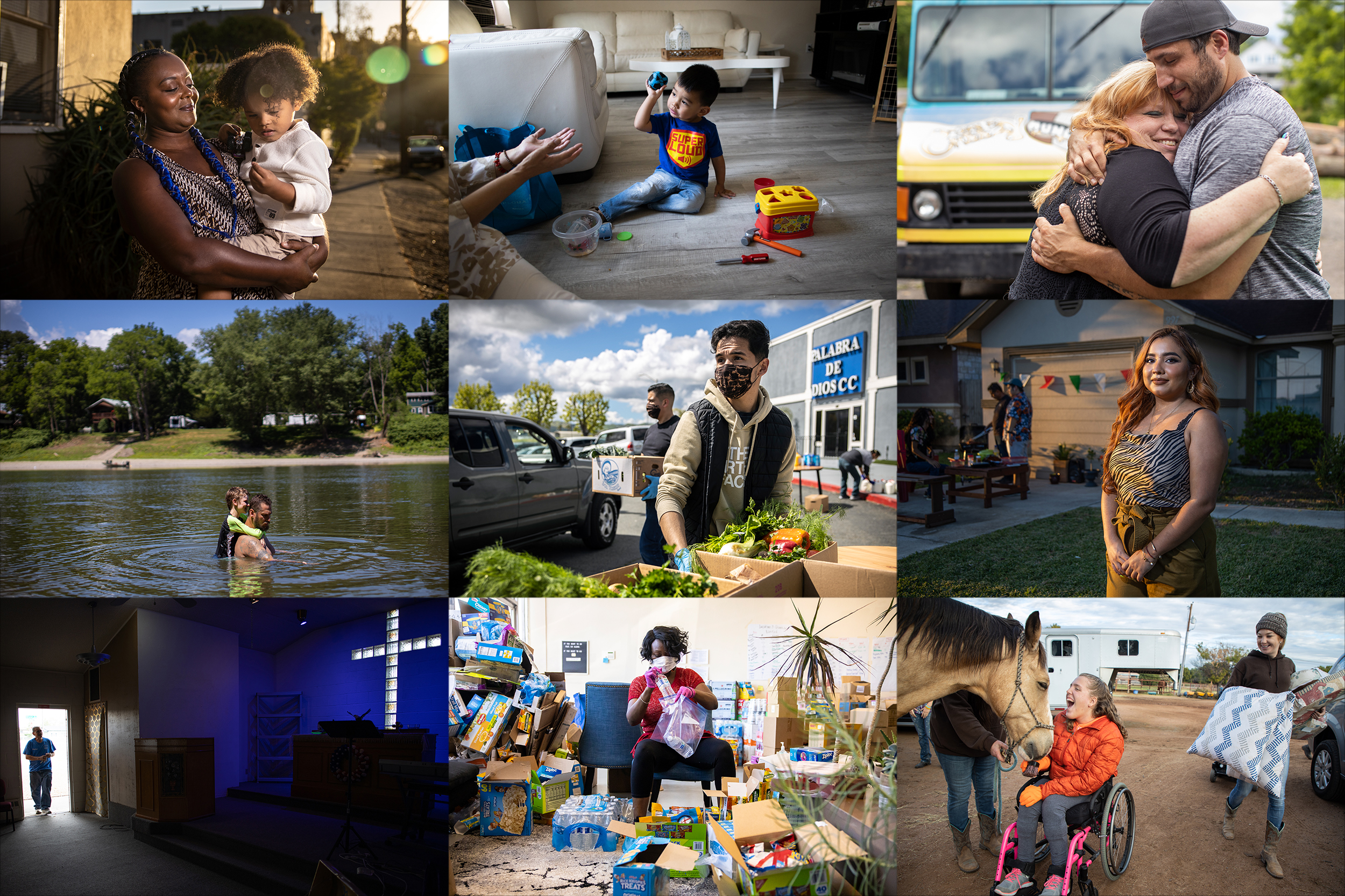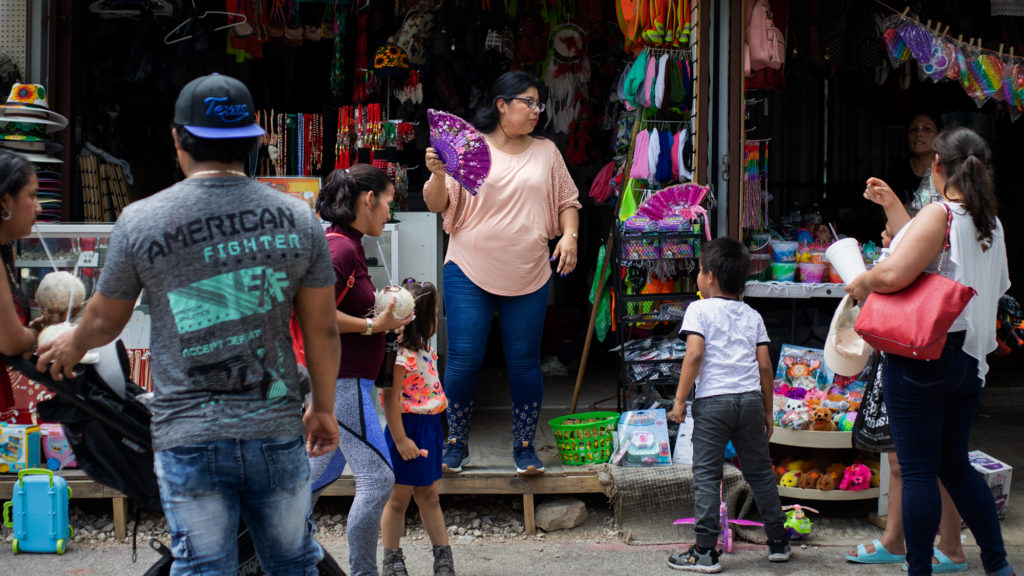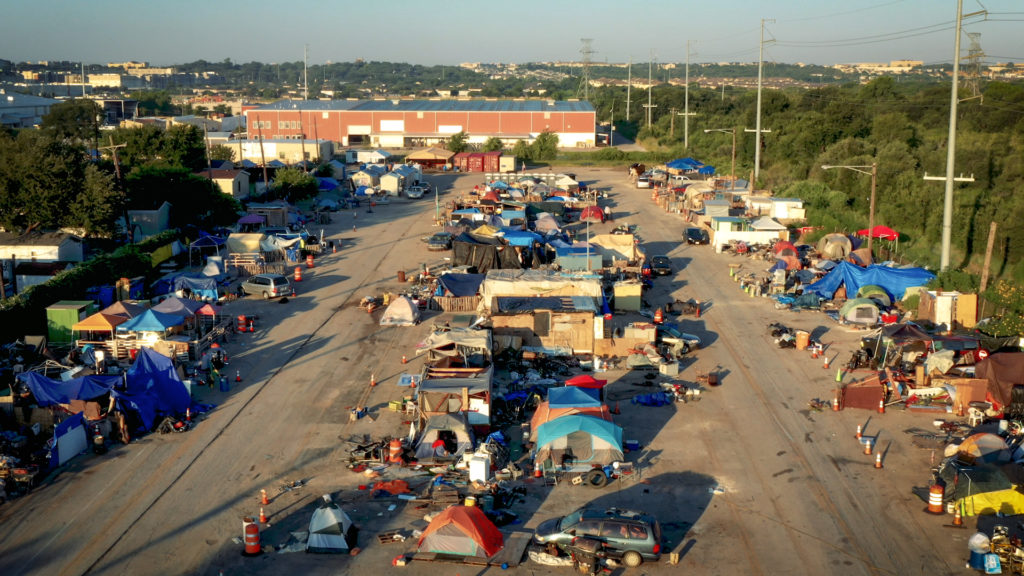Resolve Magazine’s first full year as a publication has been a memorable one. We published our first story in December of 2019, and like the rest of the world, were busy making plans without any idea of the challenges 2020 would bring. When the COVID-19 pandemic upended life as we know it, those plans changed, but our mission – to tell stories about people working for positive change in their communities – has stayed the same.
Over the past year we’ve had the pleasure of meeting and talking to many dedicated people across the country who provide food, health care, housing, wellness, and services where they’re most needed in their communities. We’ve seen how even the smallest organizations can have outsized impact on those around them. We’ve documented inspiring examples of adaptation, perseverance, collaboration, and empathy.
As we head into the final days of 2020, Resolve Magazine wants to celebrate and honor the work of those who continue to fight for their communities despite the challenges of this incredibly difficult year. By sharing just a few of the photographs and stories we have published this year, we hope you can feel as inspired as we have by the remarkable work of those dedicated to helping others.
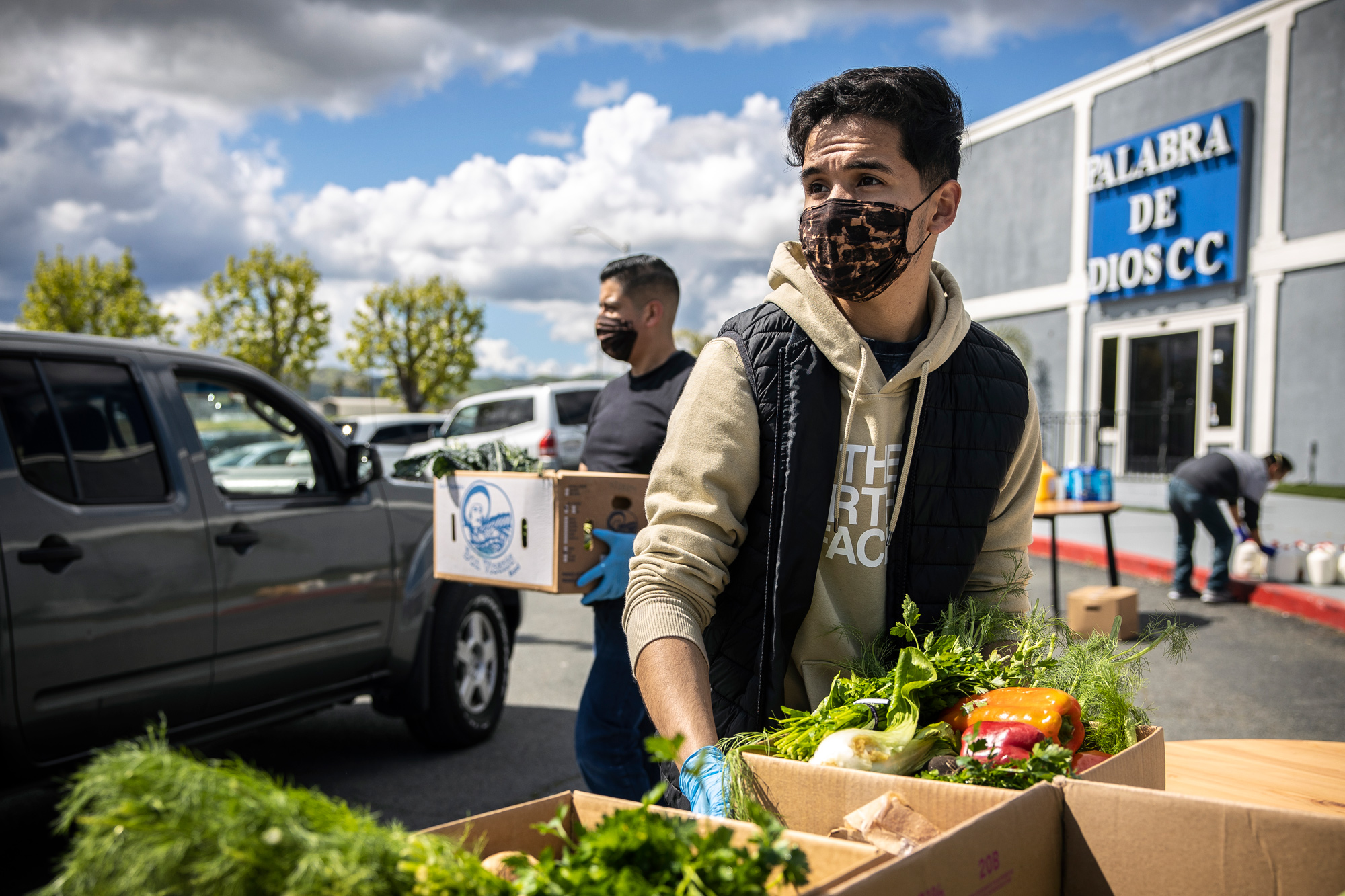
High School Senior Eric Santillan volunteers distributing groceries at the Palabra de Dios CC church in Antioch, CA. With lines of cars filling the church parking lot, winding out to the street, up the block, across an intersection and up the next block, the Palabra de Dios CC’s bi-weekly food distribution supports hundreds of families from all over the San Francisco Bay Area in critical need of food due to the COVID-19 pandemic. But to operate the distribution, the church relies on White Pony Express, whose region-wide network aimed at preventing food waste picks up excess produce and foodstuffs from grocers and restaurants and distributes it where it’s needed the most. Learn more about how White Pony Express is adapting every aspect of its operations to fight the growing food insecurity crisis in Contra Costa, California.
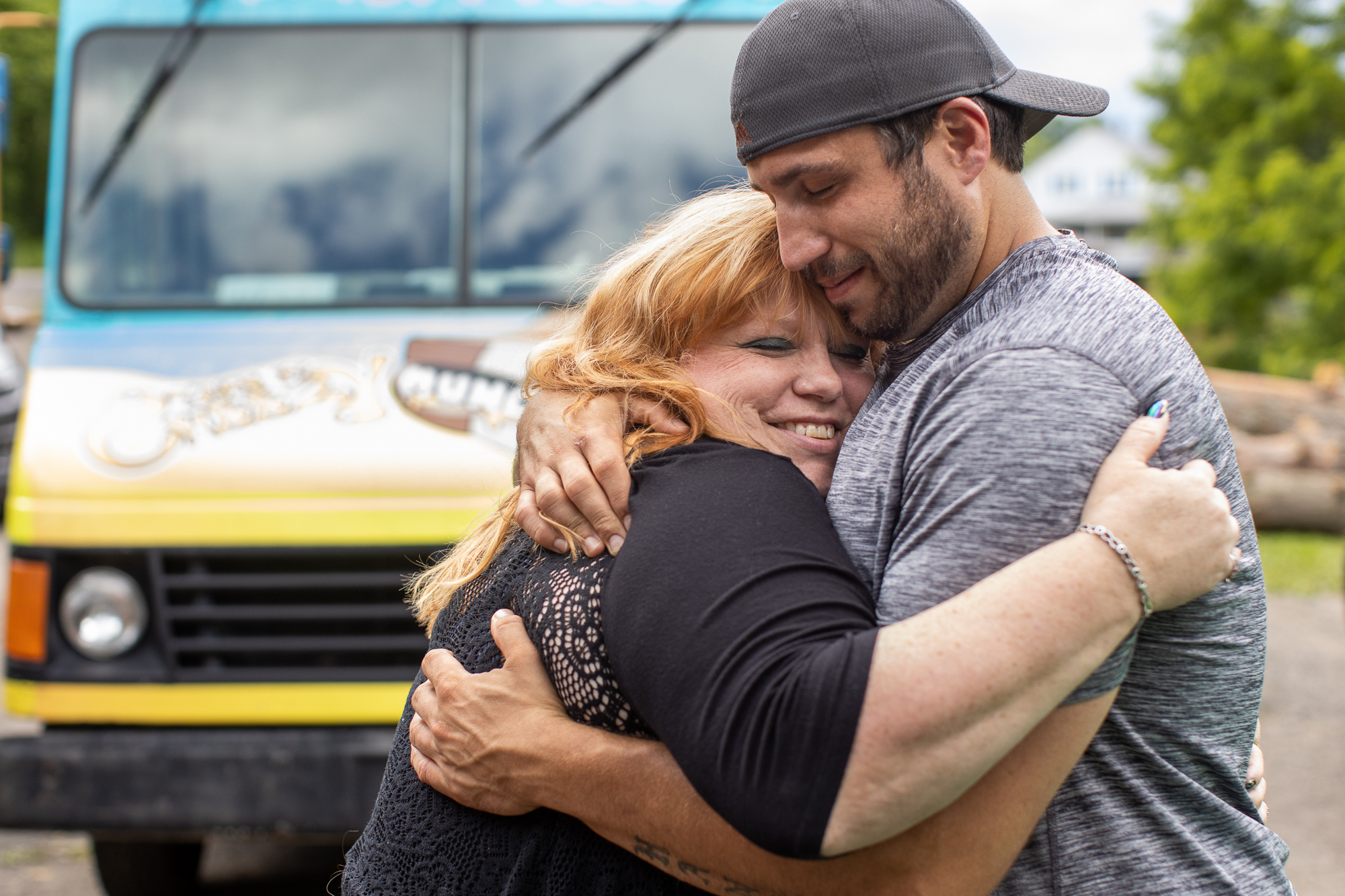
James Hanjaras hugs his sister, Kimberly Gregory, outside their mom’s house in Kingsley, Pennsylvania. Hanjaras struggled with substance abuse, and served a 21-month prison sentence for drug-related charges. While incarcerated, he got sober and took a series of courses offered by the Outreach Center for Community Resources. Within days of his release, Outreach helped him get a job in the culinary field, which had been his passion since childhood. “If you come out of prison and have that mindset that you want to do good, you’re going to do good,” he said. “I lost all that time with my family and friends. Now I can be with them.” Learn more about James and the workforce development program that helped him.
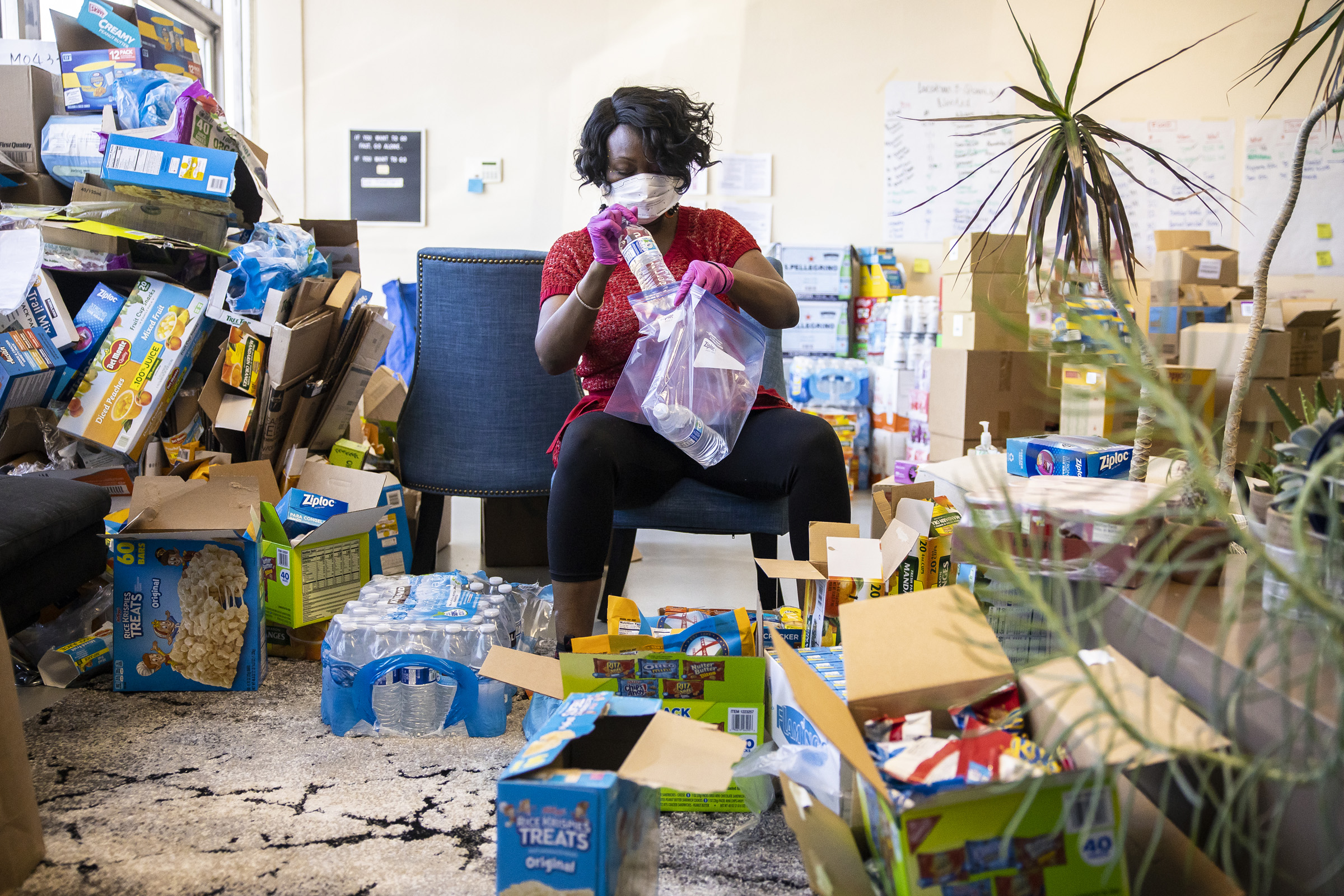
“It’s a heart connection,” says Nicole Bratton as she packs bags with food and water for distribution to unhoused residents of Oakland, California. When the COVID-19 pandemic struck, historically underserved communities like East Oakland saw the highest rates of infection and the greatest impact of the economic fallout from the pandemic. As a result of their longstanding efforts organizing in and advocating on behalf of East Oakland and the hard work of dedicated volunteers like Bratton, The East Oakland Collective was able to mobilize rapidly respond to the ballooning need for basic necessities in their community. “I wanted to be able to make a difference so this is a platform for me to be able to do that. This is where I’m from, East Oakland, specifically, so why not contribute to my own community?” Learn more about how the East Oakland Collective activated its city-wide network to support at-risk and underserved communities through the pandemic.
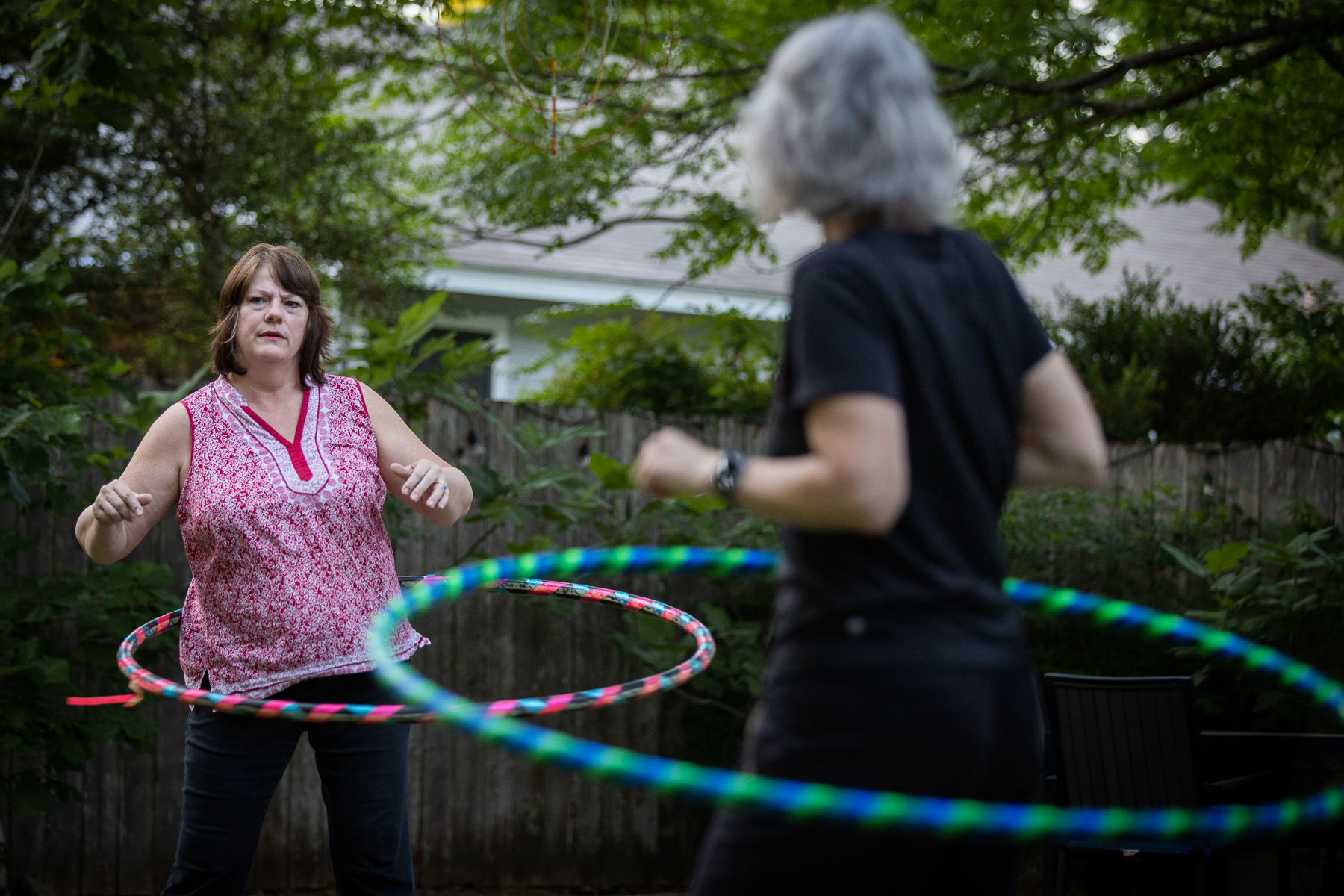
Hospice Austin Chaplain Nettie Reynolds (left) hula-hoops with her next-door neighbor, which had become their weekly stress-relief routine since the pandemic started. “Everything is kind of hard right now, and we all need downtime to process what we’re feeling,” Nettie said. “It feels good just to work out that trauma physically, sweat it out and do something joyful.” Most in-person visits by chaplains are now reserved for “essential need” situations — when a caregiver requests a chaplain to be present for a person’s final hours, for example. Due to social distancing requirements, Nettie says, she and her colleagues are finding other ways to provide spiritual and emotional support during the weeks and months leading up to death. Learn more about how hospice chaplains are finding creative ways to connect with clients and provide comfort despite social distancing.
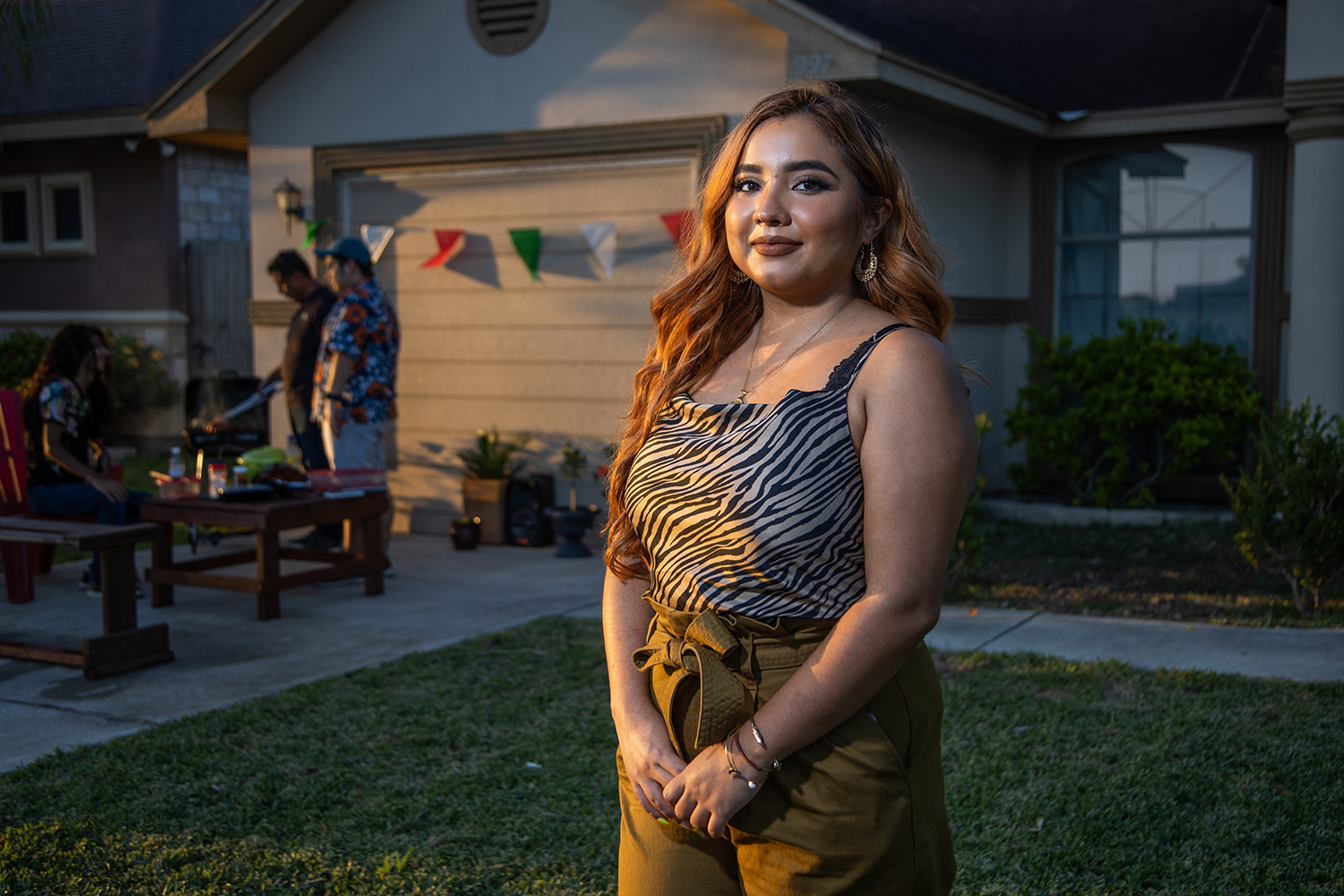
Ofelia Alonso got politically engaged in college, but she had never been intimidated about standing up for herself. “I was always the rebellious one,” Ofelia says. “My parents nicknamed me The Lawyer because I would always debate everything they said.” Now the 24-year-old is a field coordinator for Texas Rising, a Texas Freedom Network project aimed at organizing young people of color around social justice issues. She manages the organization’s activities across the entire Rio Grande Valley, from Brownsville to Mission, as well as the El Paso area, coordinating staff, volunteers, and chapter members. “I think our generation is more aware than ever of all the things that are going on. And with that comes recognizing that sometimes things like voting, public comment — they come with a lot of obstacles and it takes a lot of privilege to be able to act on them. And yet young people are driving a lot of the movement that we see right now.” Learn more about how Alonso is fighting for youth voices to be counted in the Rio Grande Valley.
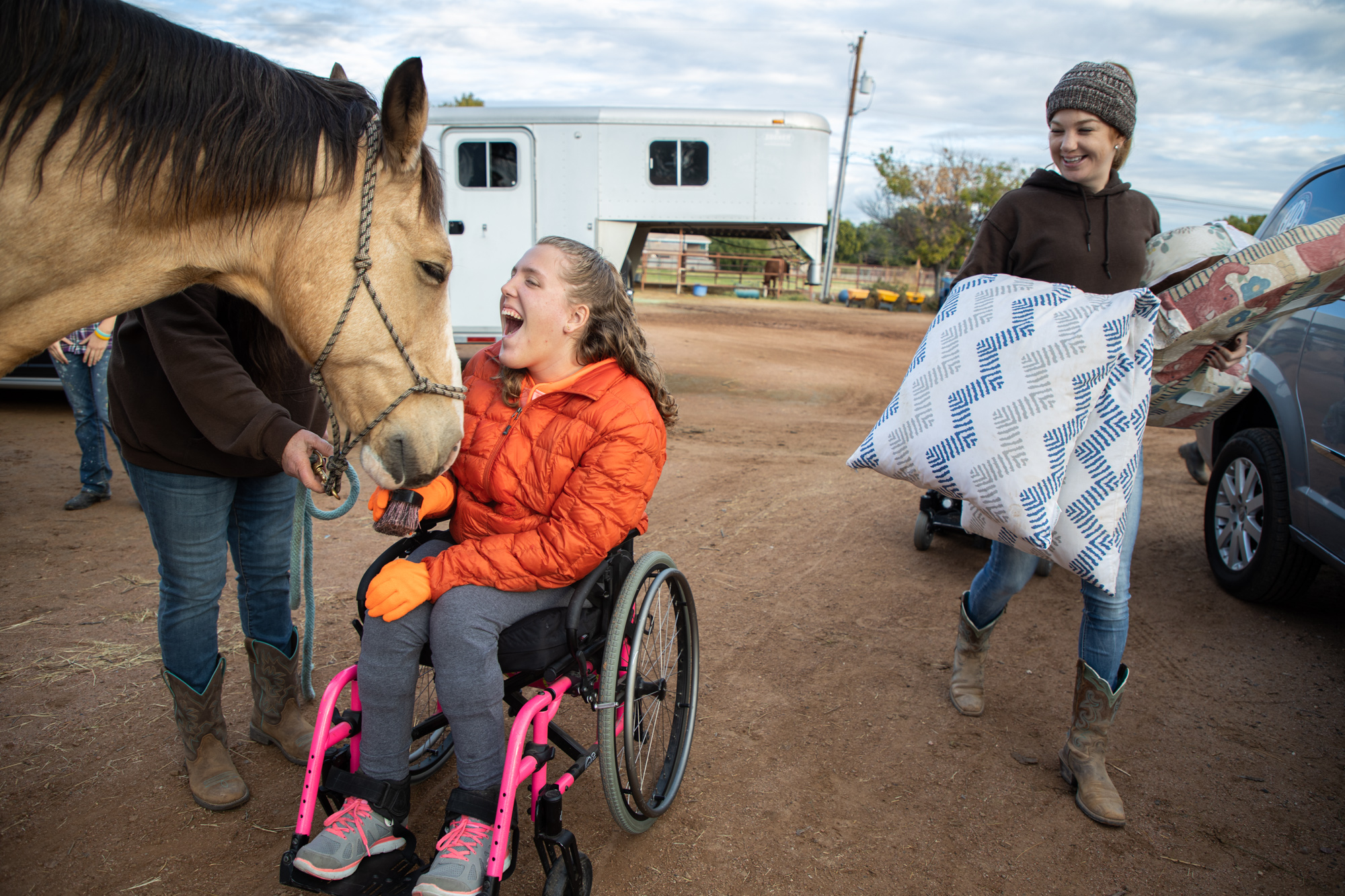
Kylie Gordon (left) greets a horse named Wrangler while occupational therapist Taylor Paskell gets ready for their weekly session at Barn Yard Equine, a four-acre horse farm in Gilbert, Arizona. Like many 16-year-olds, Kylie loves school, her friends — and horseback riding. “She’s got a wicked sense of humor,” said her mom, Kelly Gordon. “And she loves animals in general, so this is a great fit for her. She doesn’t even really know that she’s getting therapy.” That therapy — known as hippotherapy — is the use of horseback riding in conjunction with traditional treatments to help improve coordination, balance, and strength for patients with both physical and mental disabilities. Learn more about how Barn Yard Equine is helping people with disabilities.
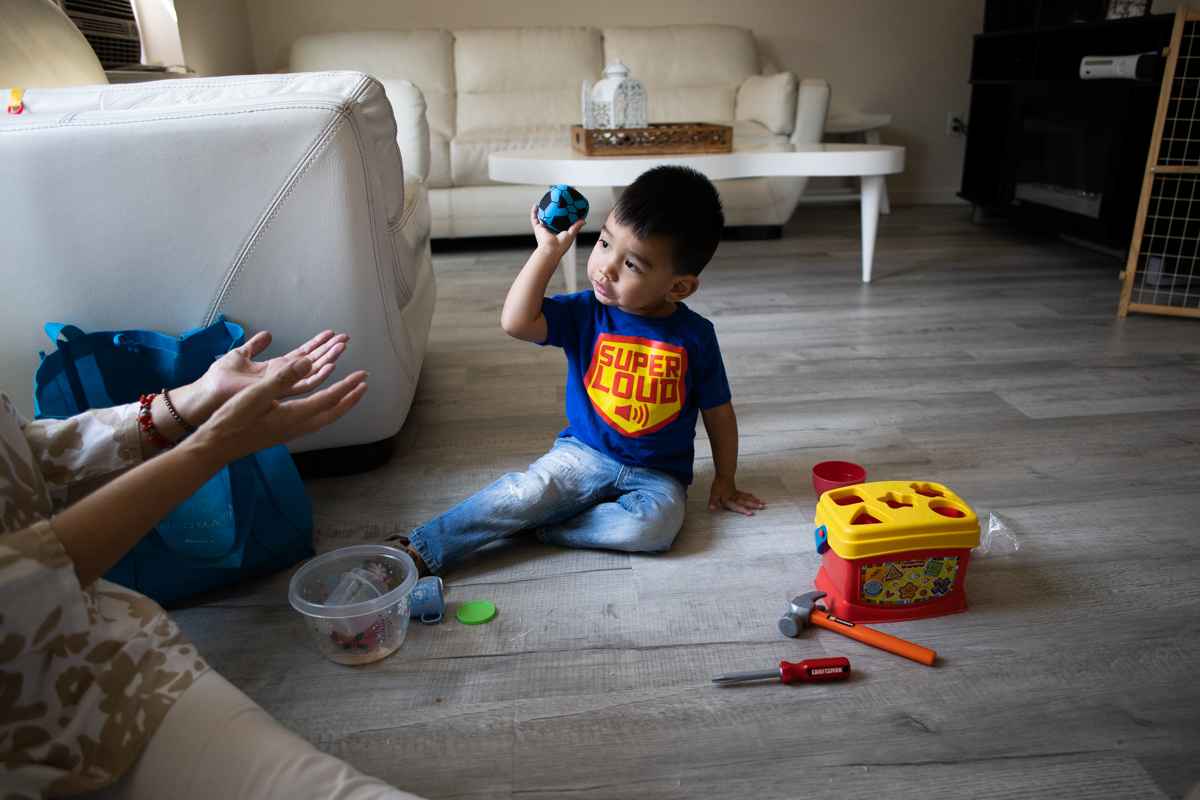
Josue Rosales plays on the floor with Maria Soto, his home visitor who has been working with his family since he was an infant, preparing him for kindergarten through the Parents as Teachers program. Home visiting, where trained professionals come to your home to provide services, can include anything from healthcare to therapy to education. Because of the pandemic, most home visits have moved online, but the home visitors continue to provide a critical service to parents at a time when education and childhood development are falling primarily to family caregivers. “A lot of the families say, if it wouldn’t be for your program, I don’t know what I would be doing with my kids,” Soto says. Learn more about how home visiting programs for parents of young children are even more critical during the pandemic.
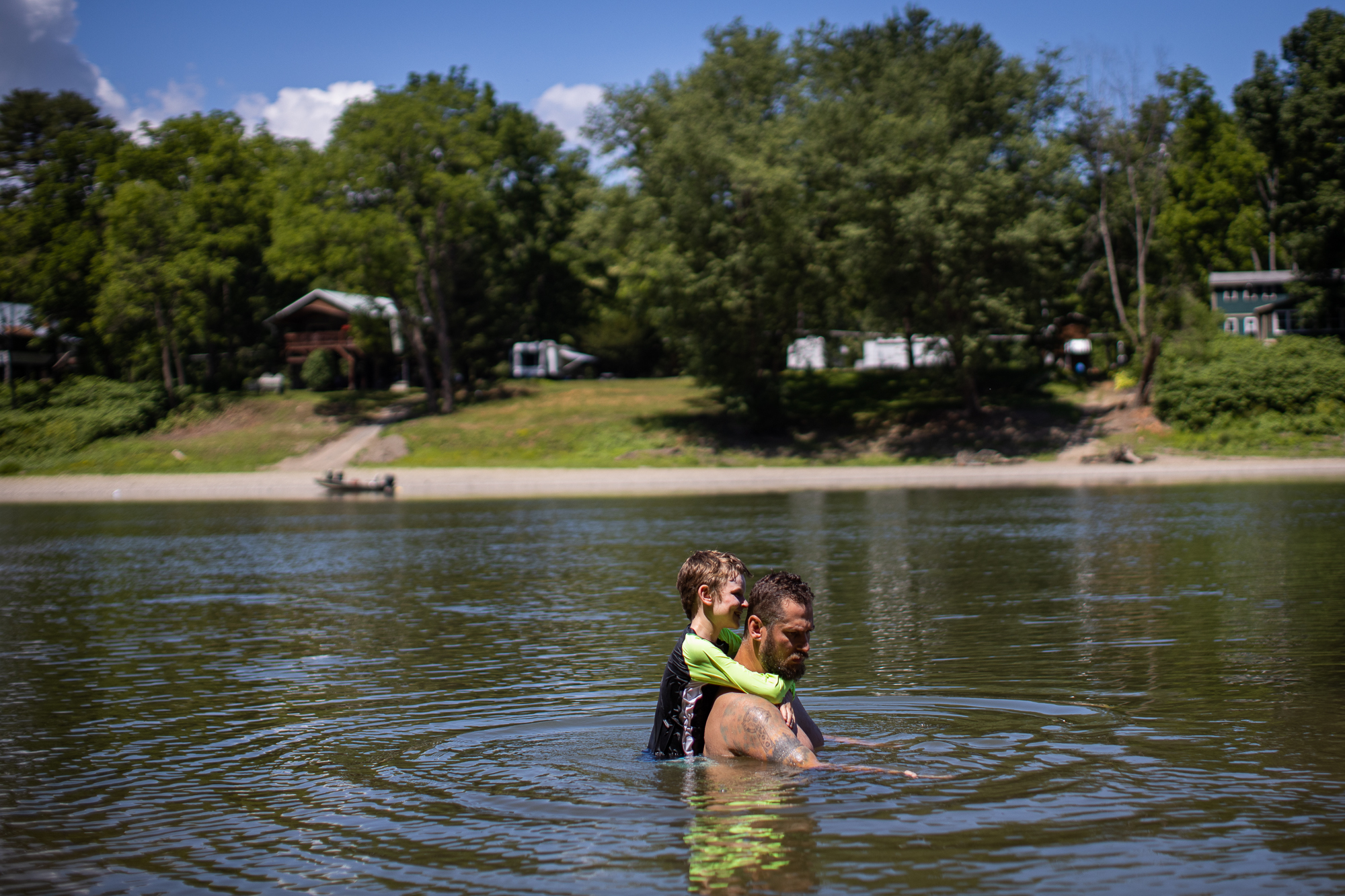
Combat veteran Walter Bosak swims in Pennsylvania’s Susquehanna River with his son, Finneus, during a kayaking and fishing trip hosted by Hunts for Healing, an all-volunteer nonprofit founded in 2009 to provide free outdoor experiences for wounded veterans. “We bring folks in from all over the country, and there’s no cost to the individual. Basically, all we ask is that they show up and enjoy themselves,” said Larry White, a volunteer and past president of the organization. “In the military, we took care of our troops. This is a continuation of that mission. That’s what we’re all put on this Earth for, to take care of one another.” Learn more about how Hunts for Healing is using outdoor activities to help wounded veterans in their transition to civilian life.
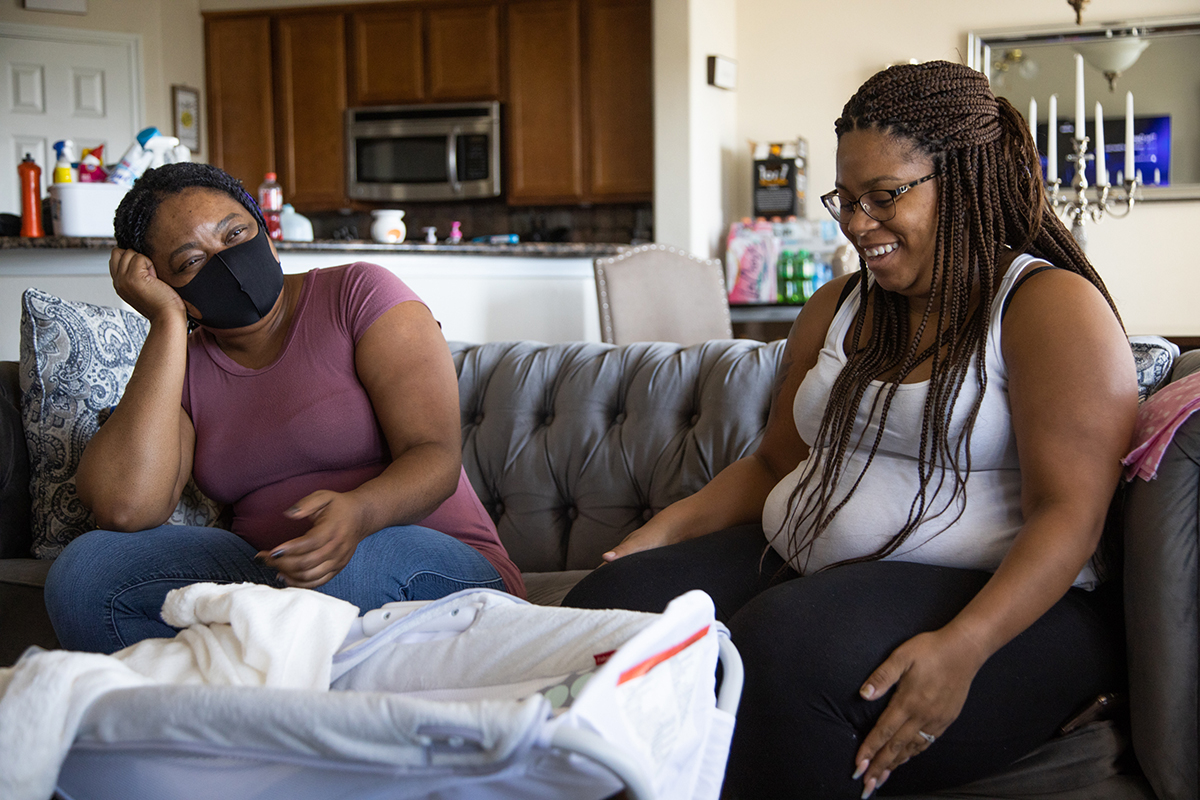
Denise Washington has been working as a birth coach, educator, doula, and midwife for the past 20 years. When she saw how few maternity care options were available for Black and Brown women in her community, she decided to start a nonprofit, Delivering Unto You. She keeps a part-time job with the IRS so she can pay her bills and offer services for free or reduced cost when needed. She also works with another organization, Mama Sana Vibrant Woman, a nonprofit dedicated to helping BIPOC (Black Indigenous and People of Color) access culturally appropriate care in pregnancy and childbirth. While the COVID-19 pandemic has brought new attention to racial disparities in health care, for birth workers like Washington the urgency has been ever-present. “This work has always felt personal to me because I’m serving women who look like me, and I understand what they are going through because I went through it myself.” Learn more about how birth workers supporting Black and Latinx women have found their work even more critical in the pandemic.
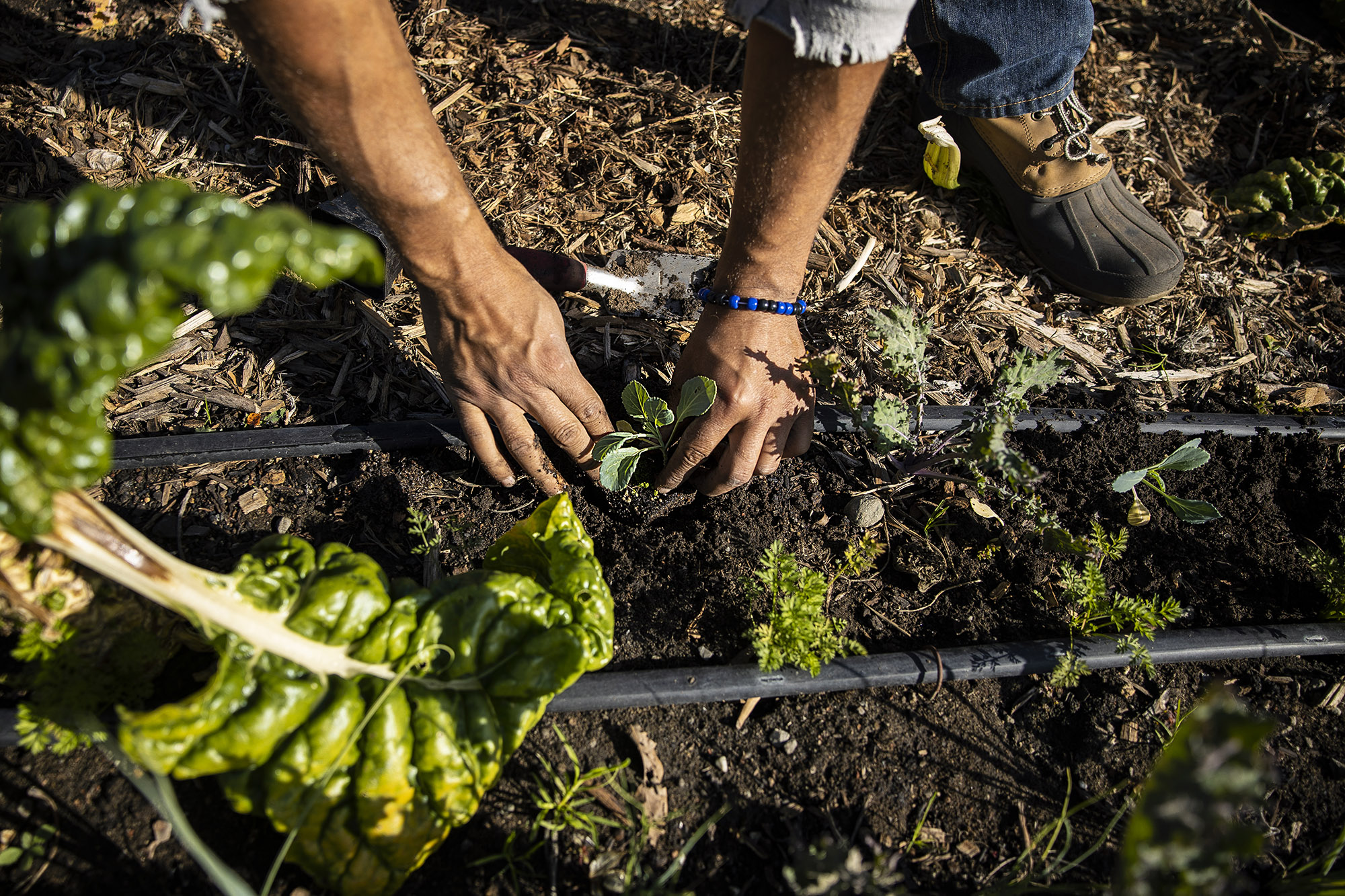
Fabio Edwards plants kale at Dig Deep Farms, an urban farm in Ashland, an unincorporated area that is one of the main destinations for recently incarcerated individuals in the San Francisco Bay Area with the highest unemployment and poverty rates in Alameda County. During paid, six-week-long internships at the farm, recently incarcerated individuals learn basic tenets of urban farming, harvesting and other skills in an effort to address the underlying conditions that lead to recidivism. “I feel like this is a way to give back to the earth,” says Edwards. “At first, I was a kid and I was like ‘I ain’t getting dirty. Fuck all this.’ Eventually, I grew a passion for it. Now I don’t even see myself doing anything else.” Learn more about how Dig Deep Farms is a root of change for the formerly incarcerated.
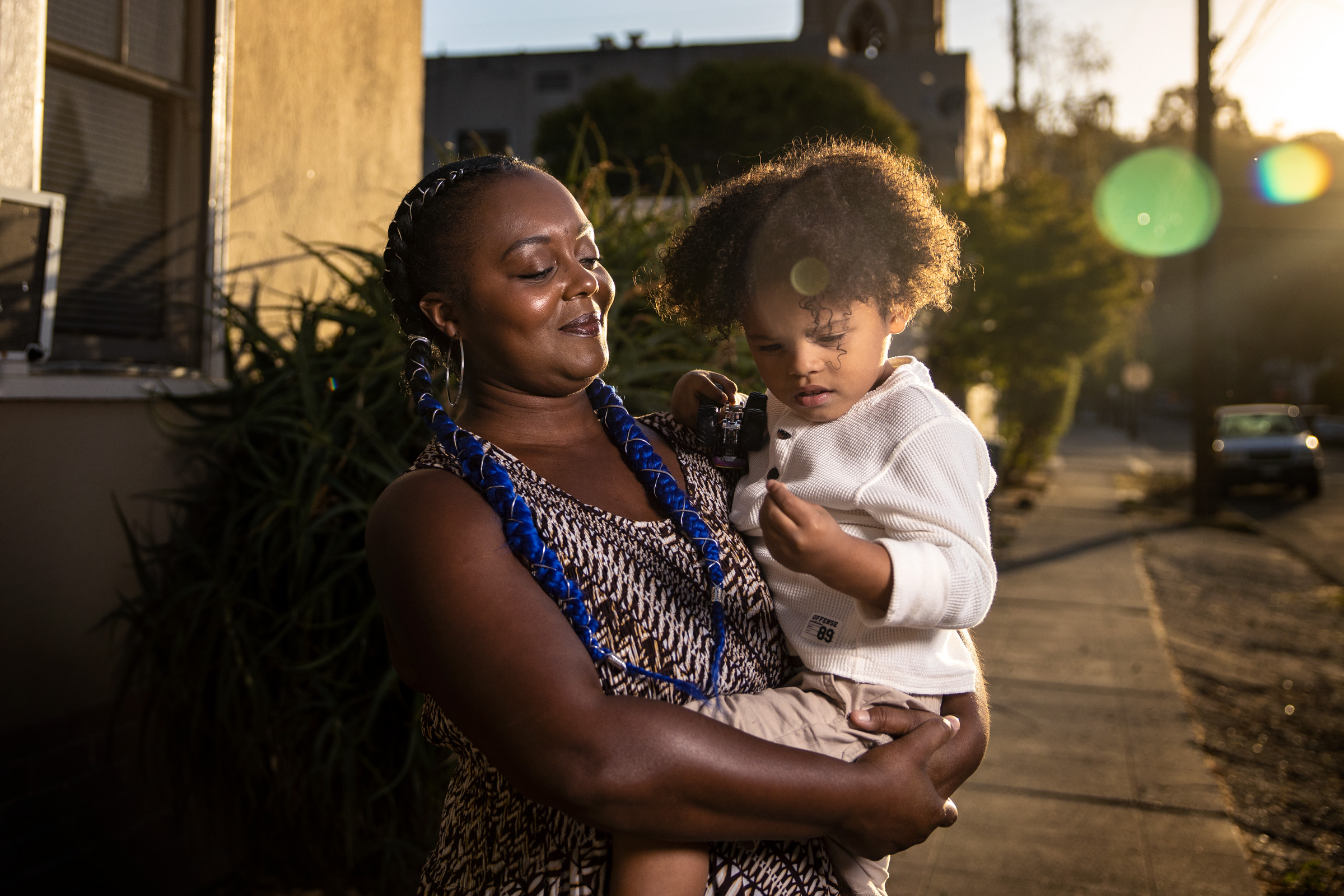
“I didn’t feel like I was being heard,” said Nakenya Allen, who lives in Martinez, in the San Francisco Bay Area. Like Allen, many parents of children with special healthcare needs report struggling to receive prompt diagnoses and access to adequate therapy and support services. But for families of color, particularly those who are Black and Latinx, the struggle is more acute. In response, the Care Parent Network started a support group for Black parents, grandparents, and caregivers of children with special needs, that meets bimonthly for two hours so participants can share their joys, challenges, and frustrations, and offer one another empathy and support. Learn more about how families are fighting racism and disability discrimination.
